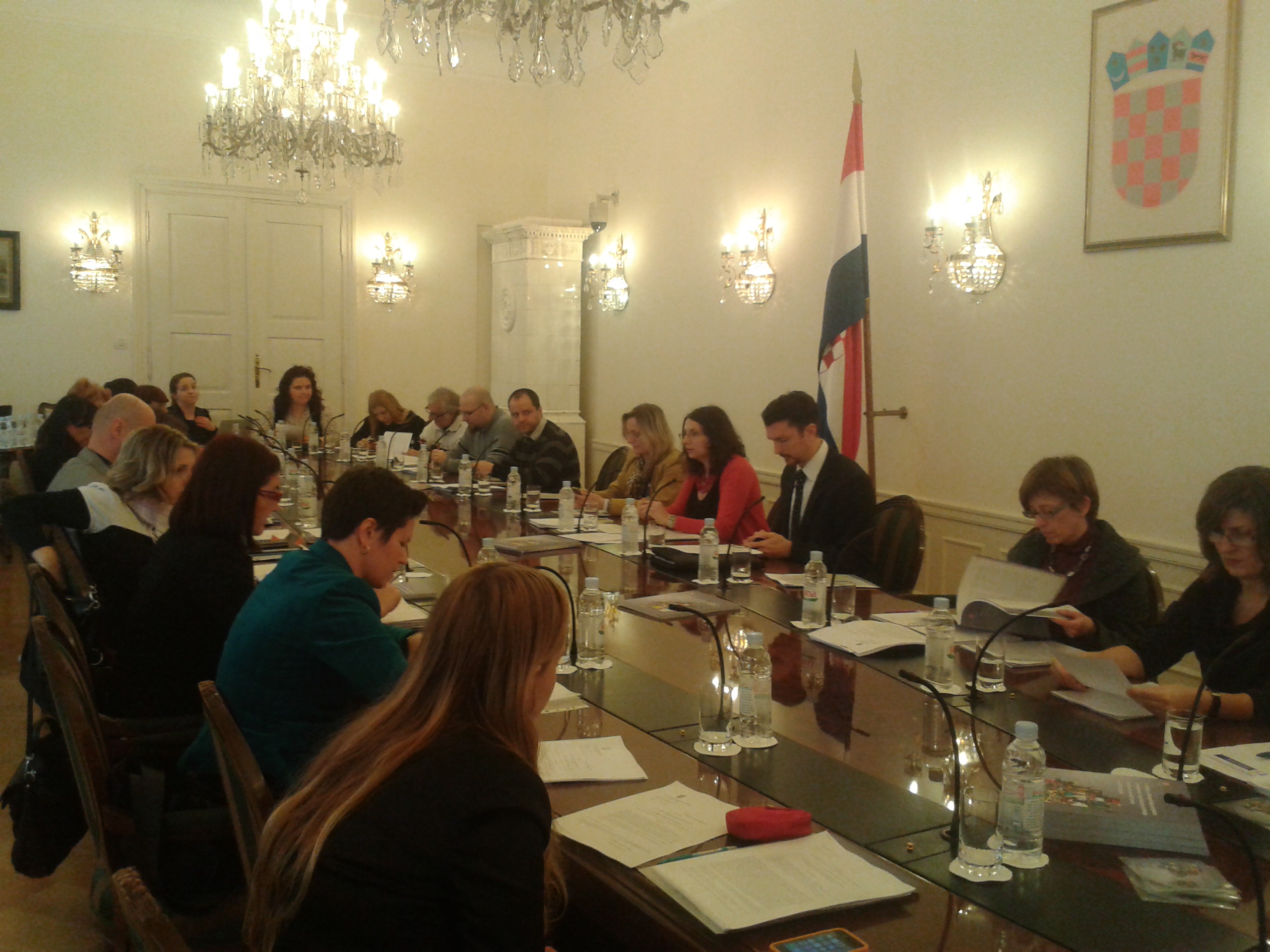

The session of the Council for the Civil Society Development was held on Wednesday, the 12th February at 1.30 p.m. at Banski dvori.

The progress of the implementation of the National Strategy for an Enabling Environment for Civil Society Development from 2012 to 2016 was discussed. Also a discussion was carried out on the possibilities for the development of civil society in the Republic of Croatia on the basis of the plan of funding opportunities and programs of civil society from the state budget and EU funds for the period 2014 – 2020. That plan was also presented at the recent Info days, including the challenges in relation to the uniform application of the standards of tendering in all state bodies and local authorities, in accordance with the Code of Good Practice Standards and Benchmarks for the allocation of funding for programmes and projects of NGOs. In addition, the current status of programming priority investments from the European Social Fund for the period from 2014 to 2020 was presented at the session, with special emphasis on the funds that will be available to support the development of civil society and strengthen the capacity of civil society organizations to contribute to the social economic development. Also, the Draft report on the Consultations with the interested public in procedures of adopting laws, other regulations and acts in 2013 was discussed, as well as the potential impact of the proposed Act on financial transactions and accounting of the non-profit organizations on the development of social entrepreneurship in Croatia. As an advisory body of the Croatian Government, the Council for Civil Society Development, was established in 2002 with the aim of promoting systematic and structured dialogue between the government and civil society organizations on public policies that have an impact on the development of civil society, philanthropy, social capital, partnerships and inter-sectoral cooperation. The Council has 29 members out of which 15 are representatives of the civil society (associations, foundations, trade unions and employers association) and14 representatives of the state bodies and government offices. With the view of continuity in work and democratic way of selection of the Council's members – CSOs representatives from all areas of activity, the Council has been recognized as a good model for structured dialogue with civil society across Europe.